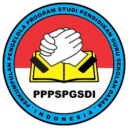Analisis Implementasi Kebijakan Pendidikan Profesi Guru Matematika Dalam Jabatan
DOI:
https://doi.org/10.35568/naturalistic.v8i2.3627Keywords:
PPG, Implementation, , obstaclesAbstract
Pendidikan Profesi Guru (PPG) is a teacher professional education which is a government commitment in order to improve the quality of education in Indonesia. One component that can determine the quality of education is the teacher. From professional teachers, quality Indonesian human resources will be born. Padang State University is one of the tertiary institutions appointed to hold PPG in office. The purpose of this study was to analyze the implementation and constraints of implementing PPG in positions at the Mathematics Education Study Program, Padang State University. The research was conducted using a descriptive method, which describes the phenomena that occur in the process of implementing the PPG policy in mathematics. The results obtained in general the implementation of PPG has been going well in accordance with applicable regulations. However, there are several obstacles in the implementation, namely: (1) problems related to the internet network; (2) there are still participants who do not have laptops; (3) participants still carry out their teaching duties at school; and (4) participants' limited ability to use technology.
Downloads
References
Abduhzen, M. (20018). Guru generasi baru. Prosiding"Profesionalisme Guru Abad XXI, Seminar IKA UNY, 1–5.
Aditomo, A., Utami, A. N., Suharso, P. L., Mini, R., Salim, A., Wongpy, N., Setiawan, J. L., Untoro, V., Putri, M. A., Alfinuha, S., Hadi, B. H., Sinambela, F. C., Akademik, B., Ardianingsih, W., Mini, R., Salim, A., Anggraini, N. P., & Fajrianthi, F. (2019). JURNAL PSIKOLOGI. 10(1).
Adri, M., Rusdinal, Zainul, R., Darni, Sriadhi, Wahyuningtyas, N., Khaerudin, Nasrun, Rahmulyani, Nuranjani, Nurmaniah, Wedi, A., Surahman, E., Aisyah, E. N., Oktaviani, H. I., Sri Martini Meilanie, R., Purnamawati, S. N., Hapidin, Listyasari, W. D., … Adnan, E. (2020). Development of Content Learning System in Professional Education Subjects for Educational Institutions in Indonesia. Journal of Physics: Conference Series, 1594(1), 0–9. https://doi.org/10.1088/1742-6596/1594/1/012022
Andrianto Pangondian, R., Insap Santosa, P., & Nugroho, E. (2019). Faktor - Faktor Yang Mempengaruhi Kesuksesan Pembelajaran Daring Dalam Revolusi Industri 4.0. Sainteks 2019, 56–60. https://seminar-id.com/semnas-sainteks2019.html
Ghifara, A. Y. (2020). Pentingkah Program Pendidikan Profesi Guru Bagi Guru Pendidikan Matematika Itu? Semadik.
Gikas, J., & Grant, M. M. (2013). Mobile computing devices in higher education: Student perspectives on learning with cellphones, smartphones & social media. Internet and Higher Education, 19, 18–26. https://doi.org/10.1016/j.iheduc.2013.06.002
He, W., Xu, G., & Kruck, S. E. (2014). Online is education for the 21st century. Journal of Information Systems Education, 25(2), 101–105.
Lailatussaadah, L., Fitriyawany, F., Erfiati, E., & Mutia, S. (2020). Faktor-Faktor Penunjang Dan Penghambat Dalam Pelaksanaan Pembelajaran Daring (Online) Ppg Dalam Jabatan (Daljab) Pada Guru Perempuan Di Aceh. Gender Equality: International Journal of Child and Gender Studies, 6(2), 41. https://doi.org/10.22373/equality.v6i2.7735
Mariati. (2021). Analisis Faktor Penghambat dan Penunjang Pelaksanaan Pembelajaran dalam Jaringan (Daring) Pada Mahasiswa PPG Dalam Jabatan Mapel Akuntansi dan Keuangan Universitas Muhammadiyah Sumatera Utara. Seminar of Social Sciences Engineering & Humaniora, 348–359. http://jurnal.pancabudi.ac.id/index.php/scenario/article/view/1207
Mulyana, E., Ph.D., T., & Juandi, D. (2014). Model Pengembangan Desain Didaktis Subject Specific Pedagogy Bidang Matematika Melalui Program Pendidikan Profesi Guru. Jurnal Pengajaran Matematika Dan Ilmu Pengetahuan Alam, 19(2), 141. https://doi.org/10.18269/jpmipa.v19i2.454
Nurul Huda, S. A., Suyanto, Arifi, A., Putranta, H., & Azizah, A. N. M. (2021). Experiences of participants in teacher professional education on obtaining soft skills: A case study in Indonesia. European Journal of Educational Research, 10(1), 313–325. https://doi.org/10.12973/EU-JER.10.1.313
Pendidikan, K., Teknologi, D. A. N., Jenderal, D., Dan, G., Kependidikan, T., Jenderal, D., Dan, G., & Kependidikan, T. (2022). Salinan Perdirjen Revisi JuknisPPG Daljab Kategori 1.
Soomro, A. A., Breitenecker, R. J., & Shah, S. A. M. (2018). Relation of work-life balance, work-family conflict, and family-work conflict with the employee performance-moderating role of job satisfaction. South Asian Journal of Business Studies, 7(1), 129–146. https://doi.org/10.1108/SAJBS-02-2017-0018
Sri Hartatik. (2020). Indonesia Kemampuan Numerasi Mahasiswa Pendidikan Profesi Guru Sekolah Dasar dalam Menyelesaikan Masalah Matematika. Education and Human Development Journal, 5(1), 32–42. https://doi.org/10.33086/ehdj.v5i1.1456
Sunaryo, H., Handayani, T., & Zuriah, N. (2020). Universitas Muhammadiyah Malang Jurnal Pendidikan Profesi Guru Kesiapan mahasiswa pendidikan profesi guru (PPG) dalam-jabatan untuk menempuh program praktik pengalaman lapangan. Jurnal Pendidikan Profesi Guru, 1(1), 29–38.
Susanti, R. (2021). Pembelajaran Biologi Secara Online pada Masa Pandemi Covid-19 : Tinjauan dari Mahasiswa Calon Guru Biologi dan Mahasiswa PPG Biologi Dalam Jabatan Universitas Sriwijaya. Seminar Nasional Pendidikan IPA Tahun 2021, 1(1), 1–10.
Zulfitri, H., Setiawati, N. P., & Ismaini. (2019). Pendidikan Profesi Guru (PPG) sebagai Upaya Meningkatkan Profesionalisme Guru. LINGUA, Jurnal Bahasa & Sastra, 19(2), 130–136.
Downloads
Published
How to Cite
Issue
Section
License
Copyright (c) 2024 Naturalistic: Jurnal Kajian dan Penelitian Pendidikan dan Pembelajaran

This work is licensed under a Creative Commons Attribution-NonCommercial-NoDerivatives 4.0 International License.
Copyright of Journal Naturalistic : Jurnal Kajian Penelitian Pendidikan dan Pembelajaran (e-ISSN:2548-8589, p-ISSN:2528-2921).
Open Access Policy
This journal provides immediate open access to its content on the principle that making research freely available to the public supports a greater global exchange of knowledge.
This journal is open access journal which means that all content is freely available without charge to users or / institution. Users are allowed to read, download, copy, distribute, print, search, or link to full text articles in this journal without asking prior permission from the publisher or author. This is in accordance with Budapest Open Access Initiative.










